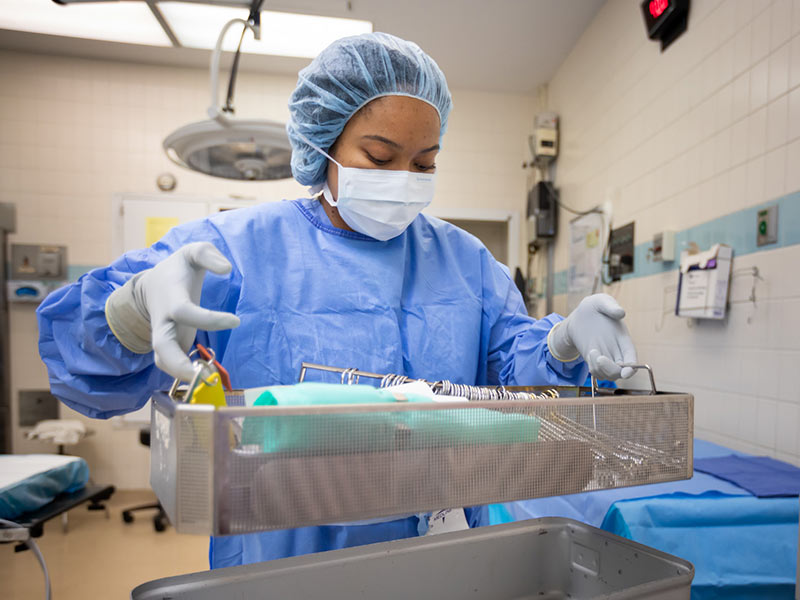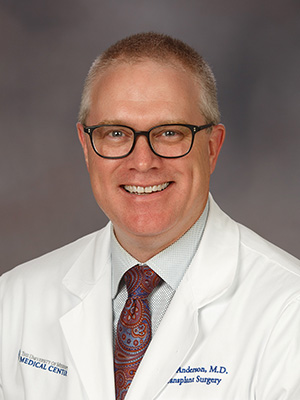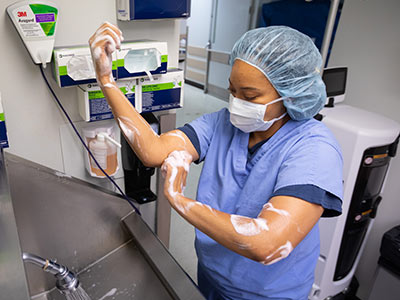‘Colobundle’ of care keeps surgical site infections at bay

University of Mississippi Medical Center surgeons are improving outcomes and decreasing infections and complications following colorectal surgery by using low-variation care protocols such as the colobundle.
Due to hard work by the Medical Center’s surgical teams, “the risk of our colorectal surgery patients developing a surgical-site infection is less than the national average,” said Dr. Thomas Helling, professor and chief of the Division of General Surgery.
A colorectal “bundle” of care, or colobundle, is critical to patient safety. Nationally, colorectal surgery patients have a much higher risk of surgical site infection than those who undergo other major surgeries. Surgical site infections not only harm patients, but can also affect a hospital’s bottom line through increased costs and decreased reimbursements.

“The Department of Surgery leads the way at UMMC in regard to focusing on our quality efforts,” said Dr. Christopher Anderson, James D. Hardy Professor and chair of the Department of Surgery.
“Among these are the development of low-variation care protocols such as our colobundle designed to decrease infections and complications following colorectal surgery.”
A multidisciplinary team approach, employing an evidence-based “bundle” of practices, is making a difference and effecting change at the Medical Center. “Our bundle is in line with other institutions,” Helling said.
It starts with educating surgery patients during clinic appointments on how they need to prepare, Helling said. “The components include standardized preparation of the colon at home. We stress that patients should take a good shower the night before and the day of surgery, using a special soap.

“On the day of surgery, our nurses in the pre-op area will wipe the patient’s abdomen with a special antibiotic ointment and will keep them warm, checking their blood sugar regularly and giving them antibiotics by vein,” Helling said. “We pay attention to body temperature, because a low body temp can promote infection.”
Surgeons may need to perform a variety of special procedures “depending on the complexity of the operation,” Helling said. That might include a temporary colostomy, he said.
“We change instruments and gowns before closing the abdominal wound to reduce the chance of infection. We perform a final debriefing to identify what we’ve done, what we’ve removed, and to look at any wound risk factors as we close the incision,” Helling said.

“Post-op, we monitor the incision closely to make sure it’s well oxygenated,” Helling said. The care team also practices antimicrobial stewardship to ensure the right post-surgery antibiotic regimen.
Standardizing bundle implementation, obtaining buy-in from surgical teams and sustaining those gains shows that Medical Center surgeons are doing the right thing by their patients when it comes to safety and positive outcomes.
The colobundle, Helling said, “has been the major advance in decreasing hospital acquired infections.
“It’s a big accomplishment, and it favorably impacts patient experience and length of stay.”


